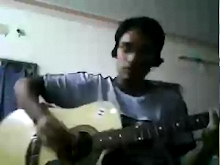The Small Picture and the BIG one too..
The Context:
Its 8 p.m. and I am polishing off another proposal. Just like all others till date, this one also came with a short-ish deadline. We somehow managed a decent (I would like to believe) version and that too about just in time.
I send it across to the big bosses and wait for any changes that might be required. 10 mins pass and the feedback starts:
This assumption shouldn’t be here. Doesn’t make sense.
- I reply saying that I had included it using inputs from the delivery team and as far as delivery goes : who knows better?
Now, 5 minutes later, I sit back and think about the assumption and realise that boss wasn’t wrong after all.
Maybe the assumption was valid – but surely the language needed to be better
(as in – while the assumption made sense from a strictly delivery standpoint - given the BIGGER business context in which the proposal was being sent, it surely did not make sense)
So, why did I not spot it in the first place?
My guess is: when I was busy getting the proposal in place, with all the 10 sections.. with inputs on pricing, exec methodology, etc coming from 3 different sources..
I was more focused on getting the smaller (yet very important) things right...
Is the formatting in place?
Is the English correct?
Is the content complete?
That’s what I was worrying about. I was looking at the document through a magnifying glass, making sure that I don’t miss the minute details – while assuming that the inputs that I was getting were correctly thought through.
But turns out that while thinking about the tactical issues, I did lose the BIGGER picture.
While getting the minute details is mandatory – you do not get any brownie points for getting them right. Its part of ‘hygiene’.
But if you miss the BIGGER picture – you could end up losing the project all together.
So – its mandatory that I quickly master the art of checking the small picture while not missing out on the BIGGER one too.
(I know that I am capable of doing it. Just that the challenge is doing both in a crunch situation where having time is a luxury.)




